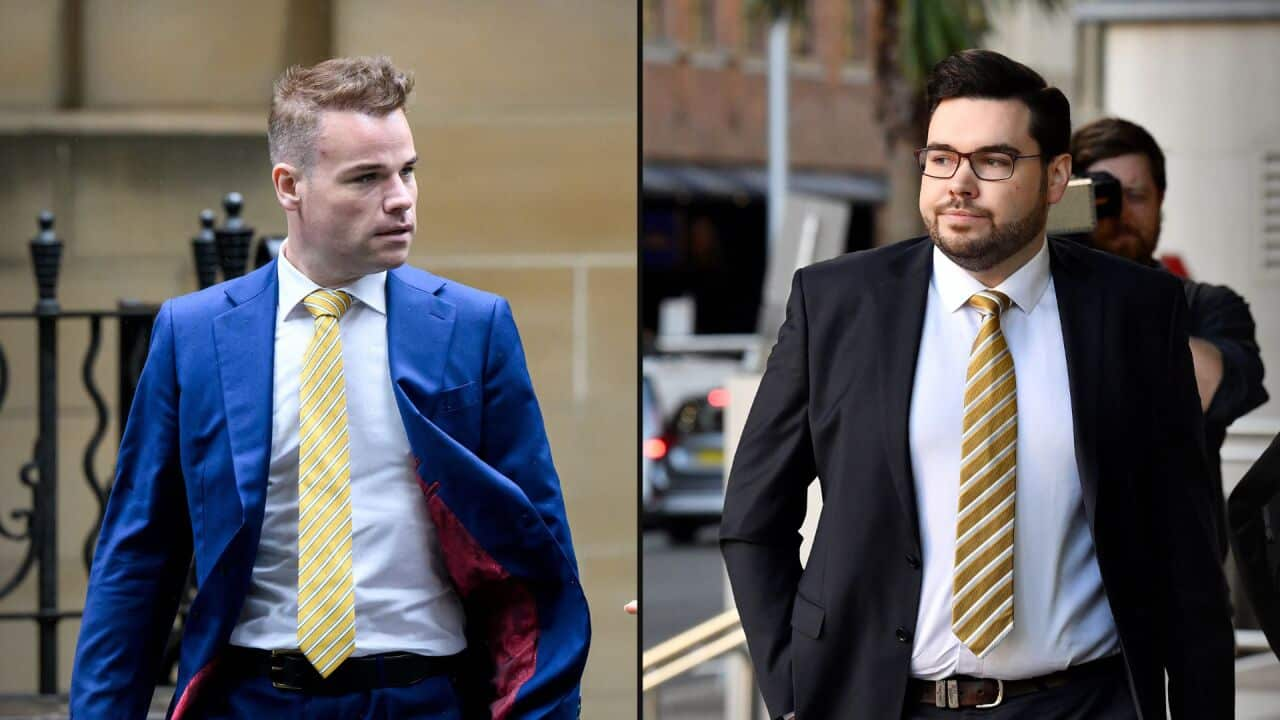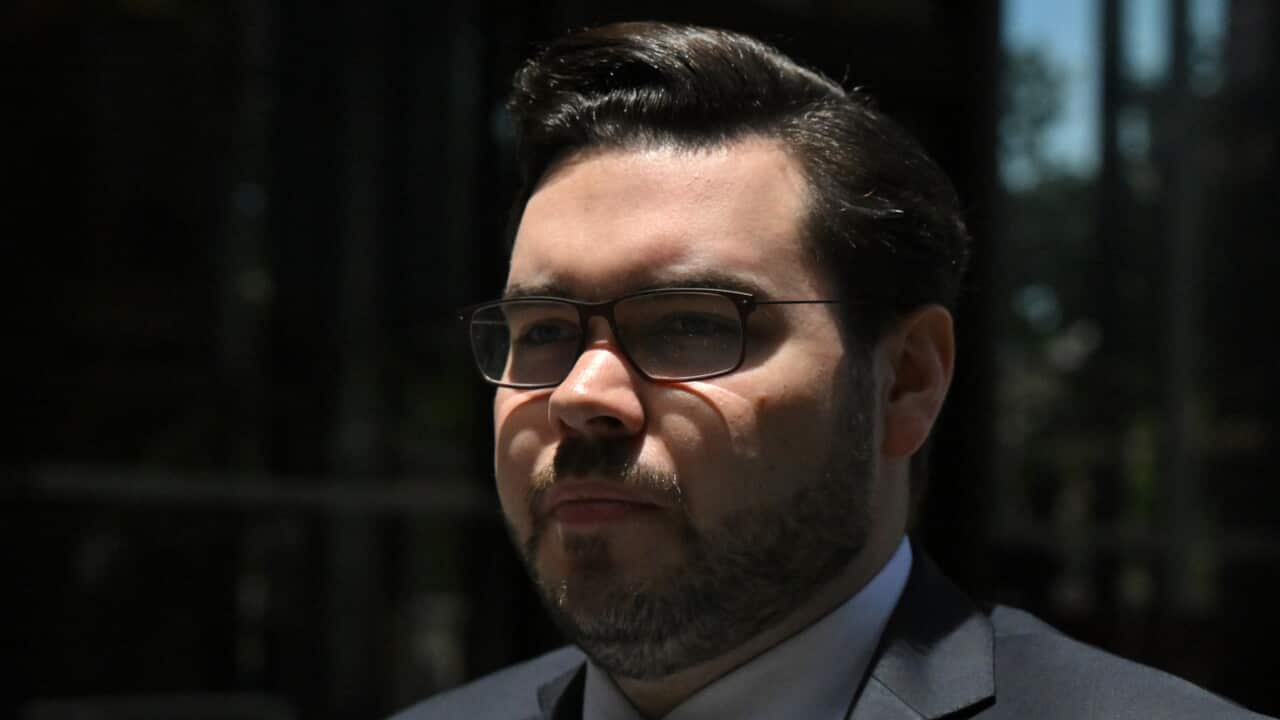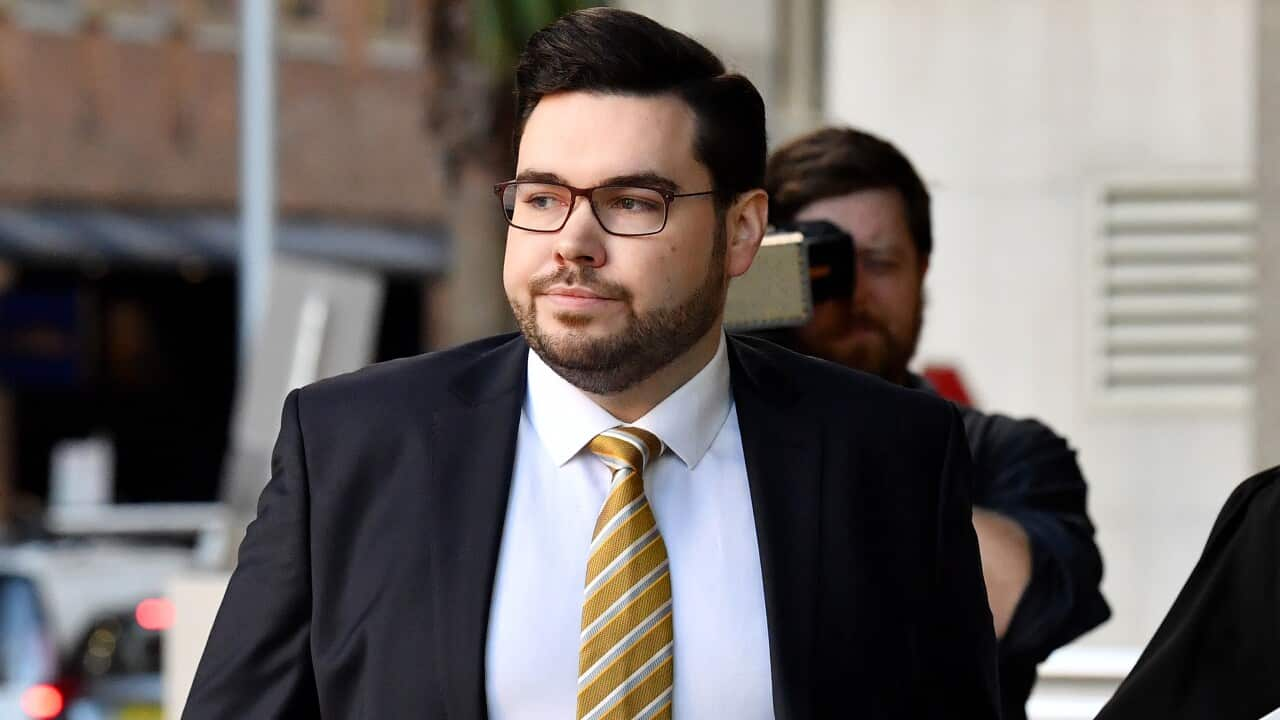Key Points
- Bruce Lehrmann is suing Network Ten and Lisa Wilkinson for defamation over their interview with Brittany Higgins.
- The Federal Court heard Lehrmann gave incorrect information to police and was allegedly reimbursed for drugs and sex workers by Seven.
- The final judgment in Lehrmann’s defamation case will be delivered in Sydney on Monday.
This article contains references to sexual assault.
The final judgment in Bruce Lehrmann's defamation case against Network Ten and Lisa Wilkinson will be delivered at the Federal Court in Sydney at 10.15am this morning — more than three months after the five-week trial ended, and four days after the final hearing of additional evidence last week.
Lehrmann is suing Network Ten and journalist Lisa Wilkinson for defamation based on claims their story about the alleged sexual assault of Brittany Higgins in a Parliament House office had identified him as the culprit — even though it did not include his name.
Higgins appeared in an interview on Ten's current affairs program, The Project, in early 2021 to allege she had been raped by a former colleague in Parliament House in March 2019. It was six months later, in August 2021, that Lehrmann was named as the man accused of raping Higgins.
Prosecutors ultimately dropped charges against Lehrmann for the alleged rape of Higgins, due to serious concerns about Higgins' mental health. Lehrmann has always denied the rape allegation.
On 7 February 2023, Lehrmann launched Federal Court defamation proceedings against Ten and Wilkinson, a former Project co-host who interviewed Higgins on the program.
That Federal Court trial, which ended in December before being revisited last week, has churned up many details that were previously unknown or unconfirmed while casting others in a different light. Here are some of the key takeaways.
Lehrmann admitted telling three different stories as to why he visited Parliament House
The reason for Lehrmann and Higgins' after-hours visit to Parliament House following a night out in Canberra has been the subject of much scrutiny throughout the course of these trials, with a number of explanations having been put forward by both parties.

Bruce Lehrmann (second left) admitted that he had lied to Parliament House security about the reason he needed to access his boss Senator Linda Reynolds' office after midnight. Source: AAP / MICK TSIKAS
While previously Lehrmann told Australian Federal Police (AFP) that he did not have any alcohol in his office, he conceded under cross-examination that he had multiple bottles of whisky and gin at the time — saying he must have been "mistaken" in his previous comments.
Lehrmann also admitted that he had lied to Parliament House security about the reason he needed to access his boss Senator Linda Reynolds' office after midnight, saying it was to pick up papers for the minister. He later lied to Reynolds' chief of staff, Fiona Brown, by telling her that he wanted to drink whisky.
The real reason he wanted access to the office, Lehrmann told the court, was to collect his house keys — but he had been worried that if he told security that they "would have said 'bugger off and come back next week'. And I needed to get home".
The judge flagged issues with both Lehrmann's and Higgins' evidence
As the defamation case entered its final days in court last December, Justice Michael Lee, the judge presiding over the case, suggested that errors and discrepancies in both Lehrmann's and Higgins' accounts meant "various parts" of their evidence "simply can't be accepted".
"One of the challenges in this case, it seems to me, is that the two principal witnesses [Lehrmann and Higgins] have real credit issues," Justice Lee said, adding that "various parts of each witness's evidence simply can't be accepted, it seems to me".

Justice Michael Lee, the judge presiding over the case, suggested that both Lehrmann and Brittany Higgins had "credit issues", and that "various parts" of their evidence "simply can't be accepted". Source: AAP / Bianca De Marchi
Lee noted that the trial presented "an unusual case" where one might "disbelieve story A [and] disbelieve story B".
Seven allegedly reimbursed Lehrmann for cocaine and sex workers
Justice Lee delayed the original verdict date of 4 April in order to hear fresh evidence on Thursday and Friday — most of which was concerned with interactions between Lehrmann and the Seven Network, during the period when they were trying to secure Lehrmann to give an exclusive interview to Seven’s current affairs program Spotlight.
Among the more salacious details to emerge from this evidence is the suggestion Seven reimbursed Lehrmann for money he spent on cocaine and sex workers, with a member of staff invoicing the company for "pre-production expenses".

Former Seven producer Taylor Auerbach (centre) departs the Federal Court of Australia in Sydney, on 5 April 2024. Credit: BIANCA DE MARCHI/AAPIMAGE
Lehrmann issued a denial in response to Maiden's story, which in turn prompted Auerbach's solicitor to issue Lehrmann with a defamation concerns notice, claiming his statement conveyed a defamatory imputation that "Taylor Auerbach lied to the press about Bruce Lehrmann being bought a massage by a Seven Network employee".
Seven said in a statement after the court hearing that it "strongly rejected the false and misleading claims".
"Seven did not condone or authorise the alleged payments to Mr Lehrmann referred to in the affidavits.
"As has been previously reported, the person involved admitted to the misuse of a Seven corporate card and all unauthorised expenses were immediately reimbursed."
Lehrmann allegedly provided Seven with records of "deeply personal exchanges" between Higgins and her former boyfriend
Auerbach disclosed these details while giving evidence to the court last week. He also alleged that Lehrmann, in an apparent bid to help Seven with the production of their program, gave them sensitive documents from the criminal proceedings against him.
It is alleged that among the documents Lehrmann supplied to Seven were 2,321 pages of text messages between Higgins and her ex-boyfriend Ben Dillaway, sent over a period of years. Copies of the texts had been handed over to the AFP under a search warrant as authorities investigated Higgins' claim that Lehrmann raped her.
Collins, representing Ten, said the text messages constituted "deeply personal exchanges between Ms Higgins and her former boyfriend that are not otherwise in the public domain", and alleged that the distribution of such "intimate" and "private messages" would amount to an abuse of process, as such a disclosure "can only have been calculated to put pressure on witnesses".
In its response, Seven said it "has never revealed its source or sources and has no intention of doing so. Seven notes Mr Lehrmann's court testimony last year that he was not the source."
Collins further added that this conduct, if accepted, would be an "outrageous contempt of court".
If this story has raised any issues for you, help is available at Lifeline on 13 11 14.
If you or someone you know wants to talk about sexual assault or harassment, family or domestic violence, call 1800RESPECT on 1800 737 732 or visit www.1800RESPECT.org.au
In an emergency, call 000.












